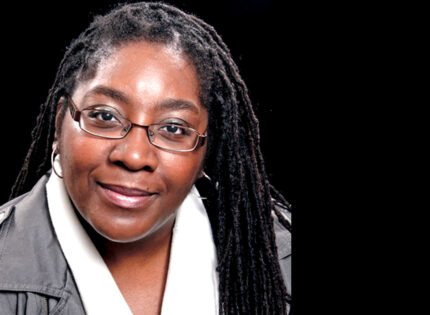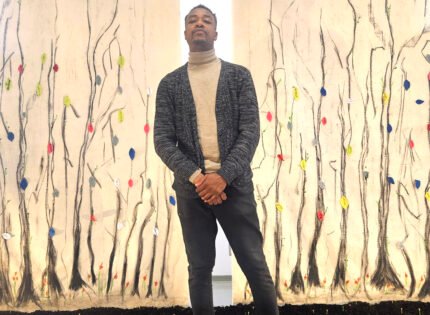“Education leads to enlightenment. Enlightenment opens the way to empathy. Empathy foreshadows reform.” Derrick A. Bell, Faces at the Bottom of the Well:
The Permanence of Racism
In the above-mentioned book, Bell, an American civil rights lawyer-turned-legal scholar who is often cited as one of the founders of critical race theory, challenges the notion that education is the key to eradicating racial intolerance. In an allegorical tale, “racial data storms” metaphorically shower white Americans with knowledge and awareness of the historical and current racial injustices faced by Black people. This supernatural phenomenon enables Whites to empathize deeply with the experiences of racism endured by Black citizens, leading to a collective call for governmental action to address social issues, particularly racial injustice. The story suggests that the newfound empathy among races not only leads to advocacy for stronger anti-discrimination legislation but also naturally decreases the likelihood of such laws being broken, as those who once might have perpetuated discrimination are transformed by their newfound understanding.
However, Bell challenges the “tall tale” recounted above, and the belief that education can lead to reform, particularly in addressing racial issues. He argues that educating White people about racial subordination is ineffective because they benefit from the status quo and racism serves as a unifying force among them. Bell’s analysis challenges the optimistic assumptions that understanding racial discrimination will lead to the abandonment of racist attitudes and that racial progress is inevitable. He emphasizes the deep-rooted nature of racism as a property interest, resistant to change through education. Bell suggests that racism is a complex interplay of guilt, responsibility and power, making it difficult to address through educational programs. Bell wrote, “The stories we tell ourselves about who we are as a nation shape our collective consciousness. We must actively rewrite those narratives to reflect the true diversity and complexity of our history.”
Every February in Canada, educational initiatives shine a spotlight on the history of Africans who were forcibly uprooted, underlining the critical role of Black history in the pursuit of racial justice. Nonetheless, I argue that there should be a more pronounced focus on bridging the gap between historical events and present-day systemic oppression. This approach would emphasize that the narrative of Black resistance is not confined to a single month but is a continuous, year-round endeavor dedicated to fostering equality and justice.
Dr. Bell also argues that racism persists in society despite the removal of explicit racial barriers and the achievements of some Black individuals. He believes that these accomplishments only reveal more subtle forms of White supremacy, highlighting the ongoing struggle for true racial equality. Bell criticizes the reliance on moral persuasion alone for driving transformation, citing the failure of laws like drug and sex laws as evidence. He advocates for a pragmatic approach that involves the strategic use of politics and power, challenging the liberal emphasis on education and moral persuasion as the only ways to bring about societal change.
“We must move beyond performative allyship and actively work towards dismantling systems of oppression,” Bell said.
The concept of “allyship” is a term used in social justice activism these days to describe collective efforts by members of the majority group to support Black people and other marginalized communities. The concept gained traction after the murder of George Floyd in 2020, leading to increased focus on racial justice. While supposedly aimed at inclusivity, “allyship” has sparked debate with critics questioning its sincerity and potential for being performative. There have even been concerns about performative allyship negatively impacting the well-being of Black employees. Some will argue that being an ally involves proactively educating oneself and expanding cultural, social and racial awareness to use one’s privilege to benefit others.
A 2021 survey by the Angus Reid Institute reveals that 58 percent of young Canadians, including White students, have witnessed racist bullying in schools. I believe the study emphasizes the lack of awareness and reluctance among educators to address and prevent racist behaviour, and calls for action from educators, policymakers and communities to create inclusive environments that celebrate diversity and make every child feel valued.
To underscore the significance of Bell’s point, I believe it’s essential to recognize that in the battle against racism, the importance of allyship is immeasurable. However, it’s imperative to grasp that being an ally involves more than just declaring oneself as non-racist. Genuine allyship requires a commitment to active anti-racism.To our dear allies, your actions are pivotal. When you witness discrimination based on race, it’s imperative to speak up and report it. If you encounter someone making racist remarks, challenge them; if you’re presented with a racist joke, do not condone it with laughter — instead, call it out and report it. Your proactive stance is vital in fostering a more inclusive and equitable society.In “The Fire Next Time,” James Baldwin emphasizes the importance of individuals, regardless of race, to raise awareness and foster understanding to overcome racial challenges and shape society’s collective history. However, in discussing the ongoing racial struggle, Baldwin conveys a potent warning through a message inspired by a biblical prophecy and reflected in a slave song. The message is: “God gave Noah the rainbow sign. No more water, the fire next time.” This implies that future challenges could be more severe if the issues are not addressed.















